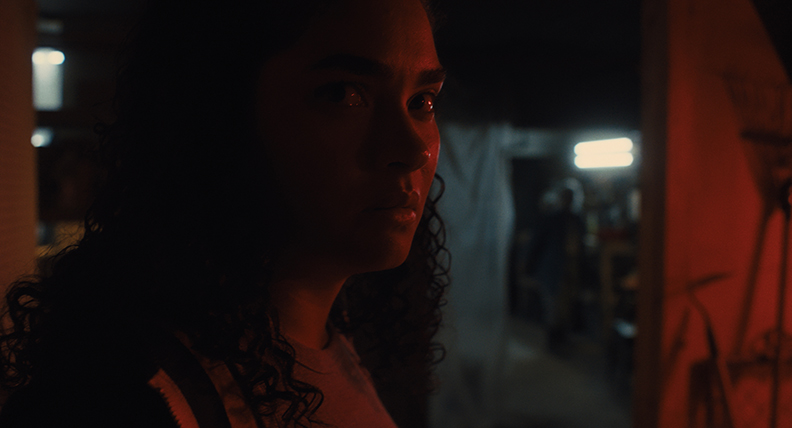
The Cost of Clearing Your Name
MOVIE REVIEW
Bad Boy
–
Genre: Documentary, Crime, Biography
Year Released: 2025
Runtime: 1h 30m
Director(s): Terry Stone, Richard Turner
Where to Watch: on UK digital October 20, 2025
RAVING REVIEW: BAD BOY opens with the echoes of Britain’s largest cash robbery, the infamous 2006 Securitas heist. But instead of glorifying the crime or fetishizing the chaos, the film takes a humanistic detour—centering not on the criminals themselves, but on one man forever caught in their shadow. Jeremy “Bad Boy” Bailey, an MMA fighter once accused and later cleared of involvement, serves as the focal point for Terry Stone and Richard Turner’s latest documentary, which explores how public perception can outlast even the harshest legal verdicts.
This isn’t a typical true-crime exploration designed to thrill audiences with tabloid shock. Instead, BAD BOY operates as both a character study and a cautionary tale. Stone trades the fiction of gangster bravado for the raw truth of Bailey’s reality. Turner brings a grounded editorial storytelling that keeps the narrative from drifting into spectacle. The result is a documentary that feels less like a reconstruction and more like a reckoning.
At its core, the film asks a question that lingers long after the credits: how do you rebuild your life when the world still treats you like a suspect? Bailey’s interviews—open, weary, yet defiant—anchor the documentary in vulnerability. There’s no glamorizing his past; his teenage descent into crime and early exposure to violence are laid bare. But as the narrative pivots to his time as a fighter and gym owner, BAD BOY reveals something more intimate: the slow, grueling process of personal reinvention.
The filmmakers weave through Bailey’s past with an almost journalistic curiosity, occasionally cutting to footage from his fights and candid moments in his gym. Each segment feels both testimonial and therapeutic—Bailey speaking not to clear his name but to reclaim it. Supporting interviews with figures like UFC champion Michael Bisping provide credibility, but they also function as moral mirrors. Their reflections on reputation and redemption broaden the film’s thematic reach beyond one man’s life.
The documentary’s middle section is its strongest. As it explores the intersection of fame, fear, and the public’s appetite for villainy, it highlights how narratives of crime often persist long after innocence is proven. Bailey’s cleared name does not mean a clean slate. Scenes of him mentoring young fighters in Basingstoke serve as quiet rebuttals to the myth of the “Bad Boy,” reframing him as someone who’s channeled aggression into discipline and mentorship. These are the film’s most human moments—proof that resilience doesn’t require spectacle.
Yet, for all its sincerity, BAD BOY occasionally struggles to maintain focus. The filmmakers jump between biographical aspects and social commentary, sometimes diluting the emotional throughline. Viewers unfamiliar with the Securitas case may feel slightly disoriented by the brief archival context. While the documentary’s structure suggests a desire to move beyond the heist, it remains so central to Bailey’s identity that the film can’t fully escape it either.
Terry Stone’s involvement as both director and participant gives the film an insider’s texture. Known for depicting criminal underworlds on screen, his shift into nonfiction carries weight; it feels like a self-correction of sorts. Stone seems aware that stories like Bailey’s are often simplified into “bad man goes good” clichés, and he resists that trap for the most part.
One of the documentary’s most poignant achievements is how it juxtaposes two forms of combat: Bailey’s physical fights in the ring and his existential fight to reclaim dignity. The former is visceral, captured through training sequences and archival clips; the latter unfolds in moments of introspection, when Bailey pauses before answering, as though calculating how much of himself to reveal. These hesitations are telling. They remind viewers that a man’s name can be cleared in court yet remain condemned in conversation.
While not groundbreaking, BAD BOY succeeds where many similar feature docs falter: it finds empathy in a space often occupied by sensationalism. The film doesn’t attempt to prove Bailey’s innocence—history already did that—but it does illuminate the cost of perpetual suspicion. In the era of social media permanence and algorithmic rumor, this message lands sharply.
BAD BOY stands as a portrait of survival through stigma. It isn’t about erasing mistakes or rewriting history—it’s about confronting how stories can define us long after the facts have been settled. Bailey’s journey from accused criminal to community mentor may not be flawless, but it’s undeniably human. The documentary’s imperfections, much like its subject’s scars, are what make it compelling.
BAD BOY isn’t a reinvention of the true-crime genre, but it doesn’t need to be. Its power comes from its restraint—from its refusal to turn Jeremy Bailey into either hero or villain. Terry Stone and Richard Turner craft a film that’s both raw and redemptive, occasionally uneven but deeply personal. It captures what happens when a man becomes a myth against his will—and how he fights, quite literally, to take his story back.
Please visit https://linktr.ee/overlyhonestr for more reviews.
You can follow me on Letterboxd, Instagram, Twitter, and YouTube. My social media accounts can also be found on most platforms by searching for 'Overly Honest Reviews'.
I’m always happy to hear from my readers; please don't hesitate to say hello or send me any questions about movies.
[photo courtesy of MIRACLE MEDIA]
DISCLAIMER:
At Overly Honest Movie Reviews, we value honesty and transparency. Occasionally, we receive complimentary items for review, including DVDs, Blu-rays, CDs, Vinyl Records, Books, and more. We assure you that these arrangements do not influence our reviews, as we are committed to providing unbiased and sincere evaluations. We aim to help you make informed entertainment choices regardless of our relationship with distributors or producers.
Amazon Affiliate Links:
Additionally, this site contains Amazon affiliate links. If you purchase through these links, we may receive a commission. This affiliate arrangement does not affect our commitment to honest reviews and helps support our site. We appreciate your trust and support in navigating these links.



Average Rating